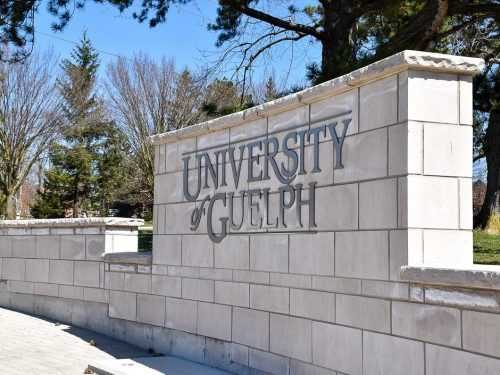 University of Guelph’s unique expertise in disease modelling and One Health approaches will be part of three major research projects aimed at addressing the coronavirus outbreak that recently received close to $2 million from the federal government.
University of Guelph’s unique expertise in disease modelling and One Health approaches will be part of three major research projects aimed at addressing the coronavirus outbreak that recently received close to $2 million from the federal government.
Prof. Scott Weese, an expert in zoonotic infections, will be part of a research project that will investigate the global management of COVID-19 using the “One Health” approach in which human and animal health experts collaborate to manage infectious disease.
The team will use rapid data gathering and analysis methods to identify areas requiring attention and make recommendations for improving infectious disease response.

Weese, a professor in the Department of Pathobiology at U of G’s Ontario Veterinary College, will focus on providing the animal and One Health perspective, such as how international animal movement can contribute to transmission of zoonotic viruses.
The project will be led by Ronald Labonté of the University of Ottawa School of Epidemiology and Public Health and has received just over $499,00 in funding.
In another project, population medicine professor Amy Greer, an expert in infectious disease modelling, will use math and statistical modelling to forecast the near-term course of the epidemic and will build simulations to help guide Canadian health agencies in efforts to limit the spread of the virus.
The project also aims to provide accurate information to Canadians to help reduce fear, xenophobia and anxiety that often attend emerging diseases.
 Holder of a Canada Research Chair in Population Disease Modelling, Greer explores the introduction, spread and control of infectious diseases. She and colleagues are already analyzing and modelling coronavirus to help public health agencies understand the virus and predict what’s next.
Holder of a Canada Research Chair in Population Disease Modelling, Greer explores the introduction, spread and control of infectious diseases. She and colleagues are already analyzing and modelling coronavirus to help public health agencies understand the virus and predict what’s next.
This $330,000 project is led by Dr. David Fisman and Prof. Ashleigh Tuite, Division of Epidemiology at the University of Toronto, and includes doctors, epidemiologists, public health professionals and statisticians. Many, including Greer, have experience responding to outbreaks such as H1N1 influenza, SARS and Ebola.
Prof. Wei Zhang, an assistant professor in the Department of Molecular and Cellular Biology, will also be contributing to research as part of a team that will use protein engineering technology to find new treatments for COVID-19.
 Zhang will be working alongside a team from University of Toronto led by Prof. Sachdev Sidhu to engineer proteins to act as “molecular antidotes” and stop the coronavirus from replicating.
Zhang will be working alongside a team from University of Toronto led by Prof. Sachdev Sidhu to engineer proteins to act as “molecular antidotes” and stop the coronavirus from replicating.
Zhang and the team have already demonstrated they can create proteins that fight a related coronavirus, MERS, or Middle East Respiratory Syndrome, blocking the virus’ ability to evade the immune response.
They have now received nearly $900,000 to use the same strategy to fight this new coronavirus.
Zhang was recently named a CIFAR (Canadian Institute for Advanced Research) Azrieli Global Scholar, and received a national innovation award while working on this research as a post-doctoral researcher in Sidhu’s lab.
Earlier this month, the federal government announced the 47 projects that were approved in a rapid funding competition providing nearly $27 million for research to inform public health responses to COVID-19 and develop diagnostic tools, treatments and vaccines.
Most of that funding, including support for these two projects involving U of G researchers, will come through the Canadian Institutes of Health Research.